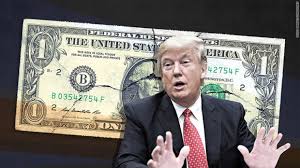Dollar tests 32-year peak to yen; Aussie, kiwi rise on rate bets

The dollar hovered near a 32-year peak above 149 yen on Tuesday even as it took a breather from a rally against other major peers, with traders bracing for possible further intervention by Tokyo to support its currency.
The Aussie strengthened after minutes from the Reserve Bank of Australia’s last meeting showed the decision to slow the pace of rate hikes to a quarter point instead of delivering another half point increase was “finely balanced.”
The New Zealand dollar surged after a hotter-than-expected consumer price report boosted expectations for further policy tightening.
The U.S. currency bought 148.855 yen
after pushing to 149.10 late in the overnight session for the first time since August 1990. That puts the major psychological barrier of 150 in focus.
At the same time, the U.S. dollar index
— which measures the greenback against six major peers, including the yen, euro and sterling — sagged near a 1½-week low as a dramatic U-turn over the U.K.’s controversial tax-slashing “mini-budget” buoyed European currencies.
The dollar-yen pair has strengthened 3% since Oct. 5, when it sustainably broke above 145 after spending about two weeks hovering near that level, hemmed in by trader nerves following the Bank of Japan’s first yen-buying intervention since 1998 on Sept. 22.
Japanese Finance Minister Shunichi Suzuki admitted following the recent Group of Seven gathering that “there wasn’t any discussion on what coordinated steps could be taken” about currency volatility.
U.S. Treasury Secretary Janet Yellen has also made clear that Washington had no appetite for concerted action, saying the dollar’s overall strength was a “natural result of different paces of monetary tightening in the United States and other countries.”
Closing on 150 though, the risk of unilateral intervention from Japanese authorities is a worry for currency traders, although its success may be limited, according to Shinichiro Kadota, a senior FX strategist at Barclays in Tokyo.
“If the market continues to march higher, especially with some volatility, the risk of intervention definitely increases,” Kadota said.
“But at the end of the day, it’s really being driven by broad dollar strength and Fed hiking expectations. As long as that is there, then upward pressure on dollar-yen remains.”
Absent the intervention by Tokyo, Kadota said the dollar should already be above 150 yen based on interest-rate differentials and other market factors.
A red-hot U.S. consumer inflation report last week boosted bets for even more aggressive U.S. policy tightening, with markets currently priced for 75 basis point hikes in November and December.
Elsewhere, sterling eased a touch to $1.1349 after surging 1.6% on Monday and touching $1.144 for the first time since Oct. 5.
Jeremy Hunt, who was appointed finance minister by Prime Minister Liz Truss on Friday, reversed swathes of the 45-billion pound “mini-budget” that sparked market turmoil, sent the pound crashing to record lows and forced the Bank of England to intervene to stem a bond market rout.
The eurowas flat at $0.9838 after earlier touching the highest since Oct. 6 at $0.9853.
The Australian dollar rose 0.14% to $0.630, supported after minutes from the RBA’s Oct. 4 meeting showed the surprise decision to slow the pace of policy tightening was “finely balanced.” The central bank’s deputy governor Michele Bullock said in a speech on Tuesday that the RBA can keep pace with tightening by global peers.
New Zealand’s kiwi
jumped 0.57% to $0.567 after a report showed consumer inflation continued to hover near three-decade highs in the third quarter.

